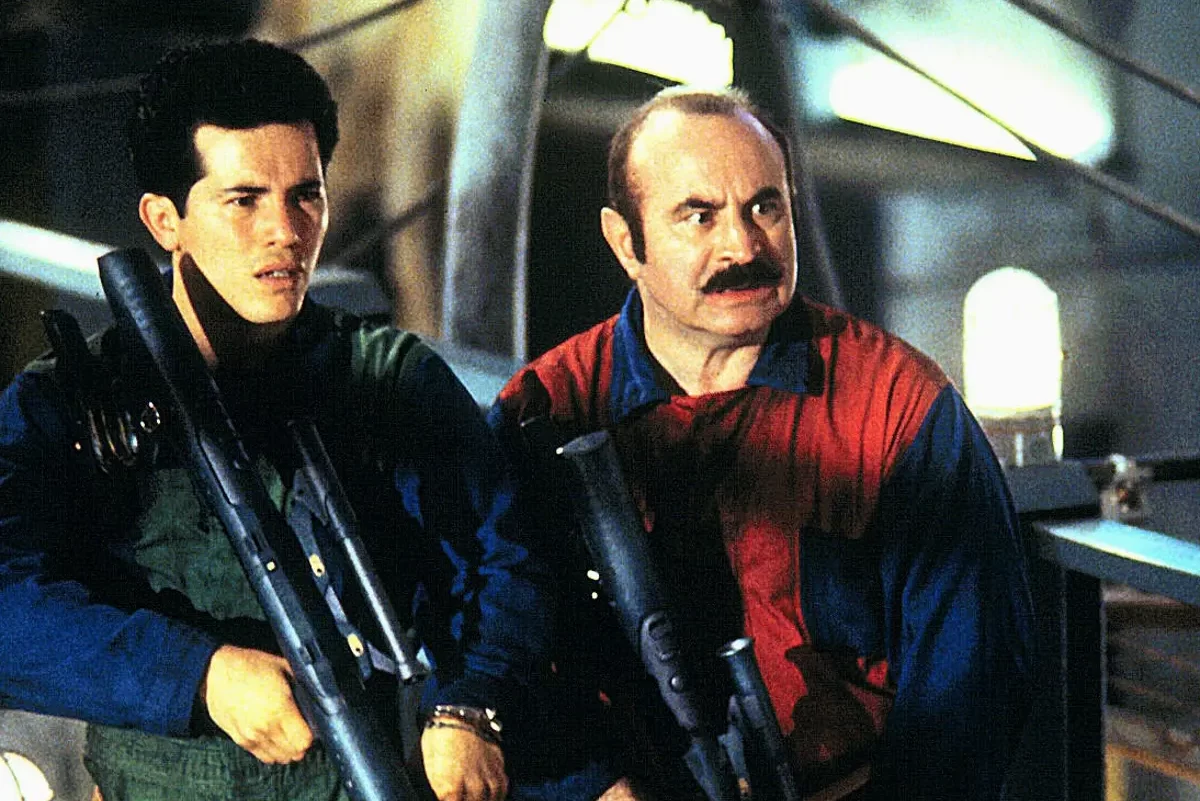Hollywood is like the Wizard in “The Wizard of Oz.” From behind the curtain, it’s a magical world with creative powers and the ability to fulfill dreams. Yet, once someone opens the curtain, they are exposed to a world full of secrets. Almost 30 years ago, because of a poorly attempted video game adaptation, one of Hollywood’s curtains was opened, exposing us to the reality that films based on video game franchises just don’t work.
Many in the business refer to it as the “video game curse,” but it has nothing to do with supernatural powers. In the past, botched Hollywood adaptations of video games like Doom and Super Mario Bros. came down to an inability to successfully take an interactive experience and turn it into a passive one. However, despite years of video game movies receiving dismal reviews — the Resident Evil franchise is the exception — Hollywood appears to have finally got it right through releases like “Detective Pikachu,” which grossed $433 million worldwide, and “Sonic the Hedgehog.” This film is based on the Japanese video game series, and it garnered $111 million worldwide over the first couple of days of its release in 2020.
Video Game Movies Are Back
So, what is behind the renewed push for Hollywood adaptations of video games? Well, there are a few reasons, including technological advancements. There’s also this little thing called star power — something past Hollywood adaptations didn’t have. Previously, video game movies were advertised as pointless action films featuring unknown actors and mediocre directors. That’s not the case anymore, as seen by the commercial success of films like “Uncharted,” based on the video game series of the same name.
The film stars Mark Wahlberg and Tom Holland, and it was directed by Ruben Fleischer, who previously directed Tom Hardy’s “Venom.” After its release, “Uncharted” grossed nearly $230 million worldwide, making it 2022’s third-highest-grossing movie. Likewise, the 2021 movie adaptation of Mortal Kombat was so successful that a sequel is already in the works. Jeremy Slater, best known for his work on “The Umbrella Academy” and “Death Note,” is set to write the screenplay.
Reaching for the Stars
In part, this use of star appeal to bring back video game movies is due to more filmmakers going back to the basics. By basics, we mean they are relying on intellectual property (IP) rights to get their projects off the ground. IP rights help producers secure the necessary funds to produce a movie; one of the best ways to acquire the backing to bankroll a film is to have an agreement with a well-known actor, director or screenwriter, all of which films like “Uncharted” and “Mortal Kombat” did.
Of course, this transition in Hollywood doesn’t have everything to do with star power. We’re also seeing a redemption for video games in new areas like television. One example of how TV is becoming an exciting area for video game adaptations is the commercial success of Netflix’s series “Arcane.” This series is set in the League of Legends universe and stars Hailee Steinfeld, who also has a leading role in Marvel’s “Hawkeye” series.
In fact, television may be the better-suited medium for these adaptations, and the upcoming TV version of “The Last of Us” could prove this. Players engage in video games in ways that resemble literature and television: You spend time learning about the environment and the characters, and with each episode, like each stage of a video game, you find out something new relating to the characters or the universe. These things, though Hollywood tries, can’t always be discovered in a two-hour film.
Empty Space
Hollywood may have given up on adaptations of video games for a few years, but other areas didn’t, capitalizing on the empty competitive space. In particular, the comic book industry has famously used popular video game franchises to create new works, such as the five-part miniseries “Assassin’s Creed: Trial by Fire,” written by Anthony Del Col and Conor McCreery. There have also been comics, manga, and graphic novels based on franchises like Silent Hill, Halo, Legends of Zelda and Street Fighter.
Similarly, the iGaming industry has used video game franchises through branded slots. Typically, branded slots are based on movies and shows, such as the “Knight Rider” game. Knight Rider is one of the top UK online slots, and it is based on the 1982 TV series starring David Hasselhoff. Games with graphics, audio and Hollywood themes help tell a story behind the slot, which keeps players coming back. It’s for these reasons casino operators have also started developing branded slots based on video games, such as the Tomb Raider games and a Resident Evil slot game. These iGaming adaptations let players keep their interactive role rather than turn the experience passive, which is one of the first complaints about video game movies.
The relationship between video games and movies has always fluctuated. For years, it was well known in the industry to not even try to make adaptations as no one wanted a repeat of the flop that was the Super Mario Bros. movie in 1993. However, by using star appeal to attract audiences, video game movies have returned to the big screen while also proving their potential in new mediums like television.








